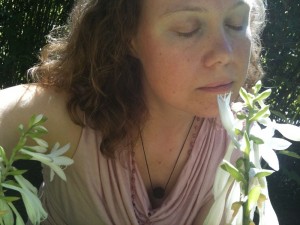In 1968, young Jewish American Neal Rosner made the decision to live in India at the ashram of a Hindu saint, at an age when most of us are not deciding anything more momentous than where to go to college.
What led him on this journey, and what brought him over the years on travels to India and Nepal in the company of enlightened masters, before settling down in the south of India at the ashram of Sri Mata Amritanandamayi Devi, is the subject of his two-volume book “On the Road to Freedom”. Rosner, now known as Swami Paramatmananda, shares in an engaging and candid tone the spiritual inspiration that got him started on the path and led him to study Eastern spirituality, as well as the intense challenges he faced both from within and without in his quest for the ultimate spiritual goal.
The first volume tells of how Rosner took up yoga and soon thereafter found himself naturally becoming increasingly monastic, less interested in spending time with a girlfriend and more interested in meditating. This was not something he had sought out at all, but he soon embraced it. He shares the experience of someone born to the affluence of the West experiencing the austerities found by spiritual aspirants in the East: few possessions, sleeping on the ground, bathing with a bucket, arising before dawn, eating simple vegetarian food and using broken or worn-out items rather than spending money on new ones. Yes, there is an adjustment period, but somehow when we read this book’s matter-of-fact narration of these austerities, they seem more natural and less daunting. When Swami himself says that all we need to sleep is five feet of ground, we know that he grew up sleeping on a bed like us, so his words carry more weight. His immersion into austerities began at the ashram of Sri Ramana Maharshi, where he began to serve Maharshi’s disciple Sri Venkatarathnam (Ratnamji), who took him on as a spiritual little brother, nicknamed him Nealu, and instructed him sternly but lovingly in spiritual practices.
After the death of Ratnamji, the young Nealu was visited at his ashram by a devotee of Sri Mata Amritanandamayi Devi. He felt her subtle presence and was inspired to travel back to Kerala and meet this “Amma” for himself. He soon realized that he was in the presence of a fully awakened master, one who embodies God-consciousness. At the time, there was not an ashram environment around Amma. There were some young college-age people who knew little of spiritual practice but wanted to be around Amma as much as they could. After some time, it became an ashram environment, and Amma instructed him and all the students in regular spiritual practice. Many of them went on to be formally initiated into sannyas, full renunciation where they dedicated their lives to serving the world, expecting nothing in return. It was at this time that the young Nealu became Swami Paramatmananda. For a number of years after the events in “On the Road to Freedom”, he served as the monk in charge at the fledgling MA Center in San Ramon, California, before returning to India. During his tenure in California, he gave regular spiritual discourses to inspire spiritual aspirants of all levels.
If you are interested in knowing what it might be like to pursue monastic spiritual practices in India, this book is a great primer. If you were simply interested in shaking up your sense of wants versus needs, this book can do that. And if you are interested in encountering a fully enlightened master – one who can take you to the state of ultimate freedom – this book can point you in the right direction.












